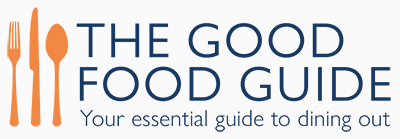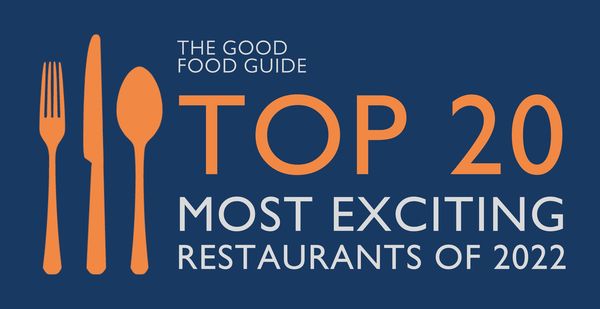With its starched white napery and tranquil garden views, the elegant Dower House restaurant at Bath’s exclusive Royal Crescent Hotel couldn’t be further removed from the mud-splattered pitch of Twickenham stadium.
As diners tuck into delicate dishes like Somerset goat’s curd, ‘old English’ tomatoes, garden marjoram, onion seed crisp and charcoal emulsion, perhaps followed by roasted brill, hot Caesar salad, crispy ham hock, fresh anchovies, quail egg and garlic oil, few visitors to The Dower House would be aware that the kitchen is run by a head chef who once cooked for the nation’s rugby team.
Scottish-born David Campbell was the travelling chef with England and the British and Irish Lions for more than a decade, including the Lions tour of New Zealand in 2005 and the South Africa tour four years later.
Campbell was working at the Pennyhill Park Hotel in Surrey in the late 1990s when he was given the opportunity to cook for England. As a lifelong rugby fan, he grabbed the opportunity. ‘They were looking for someone as a liaison between the fitness coaches and the kitchen to work on menus and I just stuck my hand up,’ says Campbell, who used to play club rugby.
‘As well as playing rugby, I was a fitness fanatic who cycled everywhere and went to the gym, but I also had an interest in sports nutrition.‘They sent me on a couple of courses with Harley Street nutritionists and from there it just snowballed. It was a case of being in the right place at the right time.’
At first, Campbell would write the menus and work closely with nutritionists, who might tweak things before signing them off. On the New Zealand tour, he had to build a seven-week meal plan, liaising with chefs in the different hotels where the squad would be staying.
Modern day rugby stars are a far cry from the stereotypical image of the beer-swilling, pie-scoffing players of yesteryear. These ultra-fit athletes are diet conscious and looking for food that’s healthy and guaranteed to give them the energy to run around the pitch for 80 minutes in front of crowds of up to 82,000 fans. That means meals featuring healthy stuff like quinoa, grains and lentils, but also top quality meat and complex carbohydrates.
‘Rugby is a power sport, so you’re looking for good quality complex carbs, lots of vegetables and high quality lean protein. It’s all about making sure there are healthy options and lots of vitamins and minerals,’ says Campbell.
‘It might sound obvious but the key is making sure it tastes good. You can have all those healthy things on the plate, but it has to taste good so you learn to be smart by using lots of herbs and spices, lots of strong punchy flavours like coriander, onion and garlic.
‘Also, surprisingly, it means you have to give players what I call ‘happy’ food. If you’re away from home in a rugby camp for two or three weeks you don’t want to be looking at lentils and quinoa every day and a lot of these players don’t come from that sort of background, they’re more used to bangers and mash.
‘There was a certain amount of leeway given after matches when it was more a question of getting something back inside them as opposed to healthy food that would give them the energy for a game. After a game it’s more about steaks, fish and chips and curry – you have to give people what they want. ‘But these guys are professional athletes training every day and playing matches in between so they are going to burn it off and they won’t put weight on like the rest of us.’
Another important difference between cooking for rugby players and customers in his restaurant is the presentation and portion size. ‘You can’t be too cheffy because you’re not trying to impress a restaurant inspector, you’re cooking for rugby players who want good size portions, well cooked, tasty and fresh – the portions are more like meals you cook at home rather than restaurant-size dishes.
‘At the hotels, these players are getting breakfast cooked for them, they’re having protein snacks, they’re having snacks between meals, a cooked lunch and an optional evening snack – they are grazing all day. ‘We’re not stacking them with food, it’s not like Tour de France cyclists who consume enormous amounts of carbs and proteins to keep them fuelled all day.
‘The pre-match meal is three and half hours before kick off and that’s very simple – baked beans, poached eggs, chicken breast, pasta with simple white sauces, fresh fruit, protein milkshakes – nothing spicy, nothing garlicky, nothing fishy, nothing that can repeat on them when they play.’
Campbell says one of the key elements of creating menus for rugby teams is to have a ‘populist’ approach, and also to offer a wide range of food for the players and the backroom staff. ‘For a touring party, you are looking at 45 [people] for England and 80 for the Lions, so you have to make sure there’s a broad range of food for everybody and you’ve got to remember not everybody is a trained athlete. Some of the backroom staff are not athletes; they still like a pint and a fag after the game!’
Related article; The new fast food








